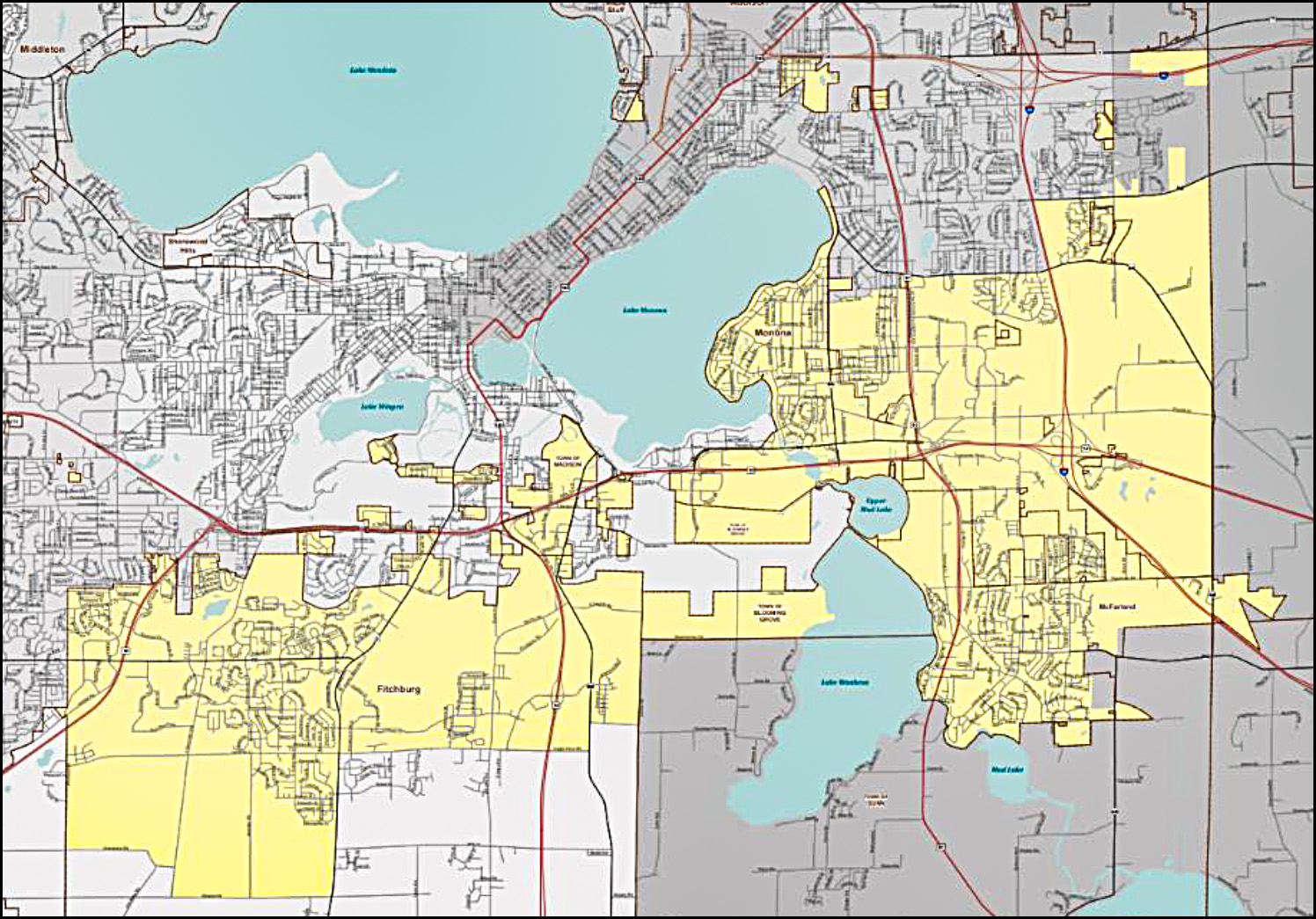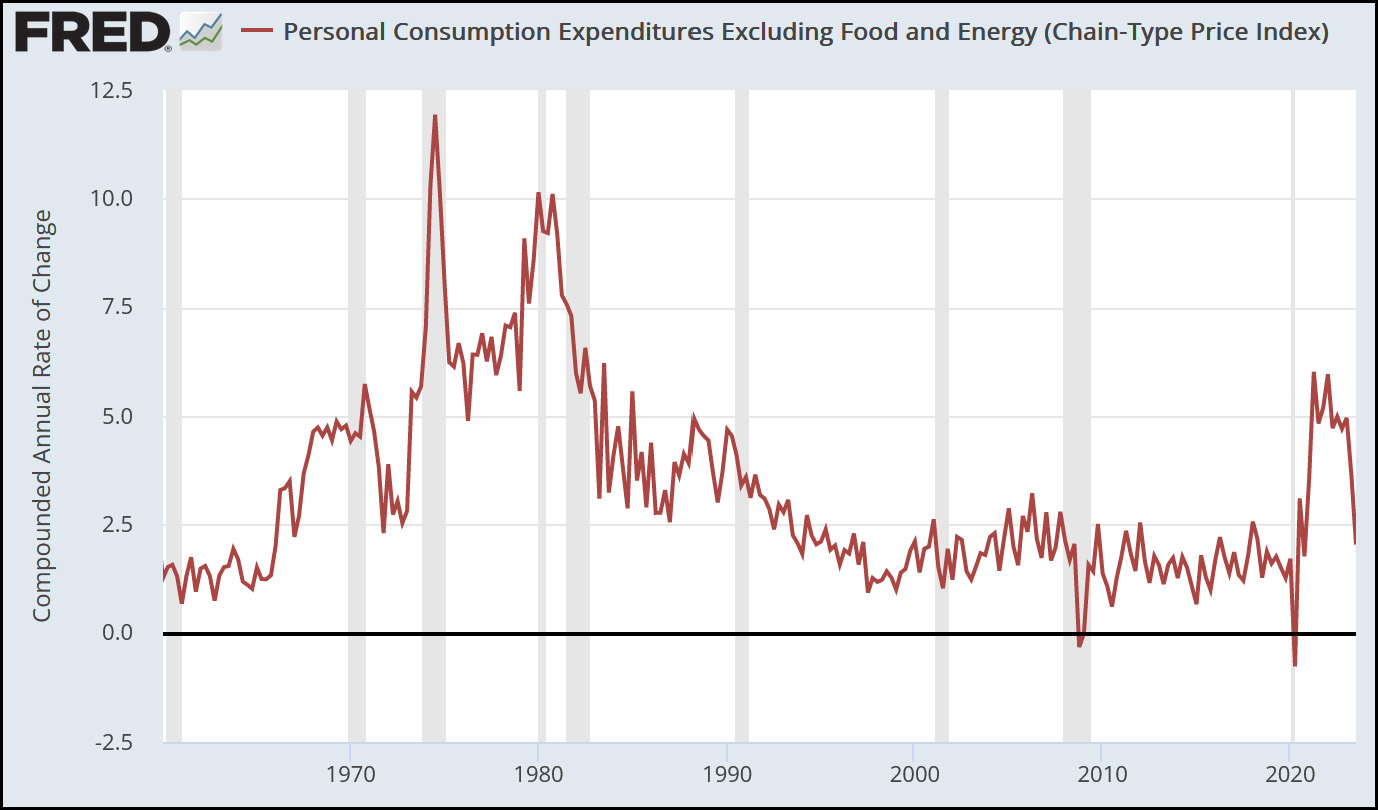As you probably know, a Democrat recently won election to the Wisconsin Supreme Court, giving them a majority. They immediately took up a lawsuit challenging the state's infamously gerrymandered legislative maps and ruled yesterday that the maps had to be redrawn.
Bob Somerby is confused by what happened, and that naturally got me curious. It turns out the main issue is a fairly simple one: In Wisconsin it's common for cities to annex nearby areas that are separated from the main municipality. Here's an example in the Madison area:
 These annexations are known as "municipal islands," and the question is whether they can be included in legislative districts, which the state constitution says must be contiguous. The majority ruled that contiguous means contiguous, and municipal islands don't qualify.¹ The minority says they've traditionally been considered "politically contiguous" and no one has ever suggested otherwise—and the sudden about-face from Democrats is just cover for their desire to redraw maps they think are unfair.
These annexations are known as "municipal islands," and the question is whether they can be included in legislative districts, which the state constitution says must be contiguous. The majority ruled that contiguous means contiguous, and municipal islands don't qualify.¹ The minority says they've traditionally been considered "politically contiguous" and no one has ever suggested otherwise—and the sudden about-face from Democrats is just cover for their desire to redraw maps they think are unfair.
And that's about it. There are a few other details, but they don't really matter. The primary question is whether to change existing precedent on municipal islands, and you can make a perfectly good case for either side. Nobody really wants to say this out loud, but it's pretty obvious that the previous Republican court ruled in favor of Republicans and the new Democratic court has ruled in favor of Democrats. Neither side is especially imbued with either virtue or villainy here.
But as I was reading through the opinion, what really startled me was the middle-school temper tantrum tone of the dissent. I've never read anything like it. It was written by Annette Kingsland Ziegler, who spends 30 pages (!) on spittle-flecked vituperation before she even bothers to address any of the legal questions. Here's a taste:
This deal was sealed on election night.... the four robe-wearers grab power.... judicial activism on steroids.... wrecking ball.... end-justifies-the-means judicial activist approach.... power grabs by this new rogue court of four.... unlawful power grab.... underhanded and unprecedented manner.... conniving and then implementing.... grab all the power they could find.... four rogue members.... Power at any cost is the new normal for this crew.... window dressing.... preordained.... judicial fiat.... unreviewable "consultants".... hand-picked cover for the court of four's decision to throw out "rigged maps".... partisan political power grabs.... mind-boggling contortion of the law.... political quest masquerading as a legal query.... sham experiment.
It actually sounds worse if you read the whole thing, and it's followed by a remarkable seven-page personal screed targeting justice Ann Walsh Bradley, airing out beefs that go back 20 years. This is interspersed with a lengthy and aggrieved defense of the Republican court's previous decision, which the Democrats overruled.
So, anyway, that's Wisconsin these days.
¹What's more, the majority says that because municipal islands are so widespread—they're found in 50 out of 99 Assembly districts and 20 out of 33 Senate districts—it's not practical to redraw just those districts that contain them. The entire map needs to be redrawn from scratch.
 This was a minor incident. The kid was never lost, was always under supervision, and was quickly reunited with his family. It produced some understandable, short-lived panic in the boy's family, but why was it even a local news story, let alone a national one?
This was a minor incident. The kid was never lost, was always under supervision, and was quickly reunited with his family. It produced some understandable, short-lived panic in the boy's family, but why was it even a local news story, let alone a national one?





